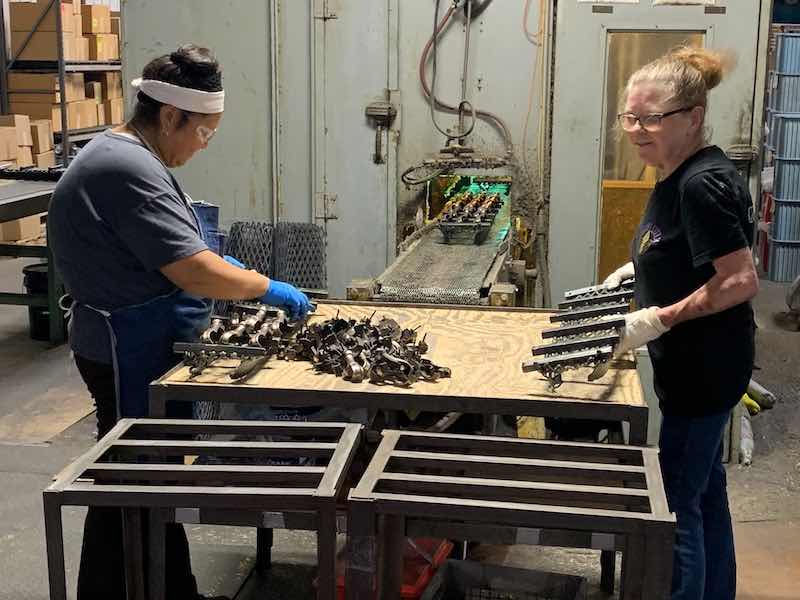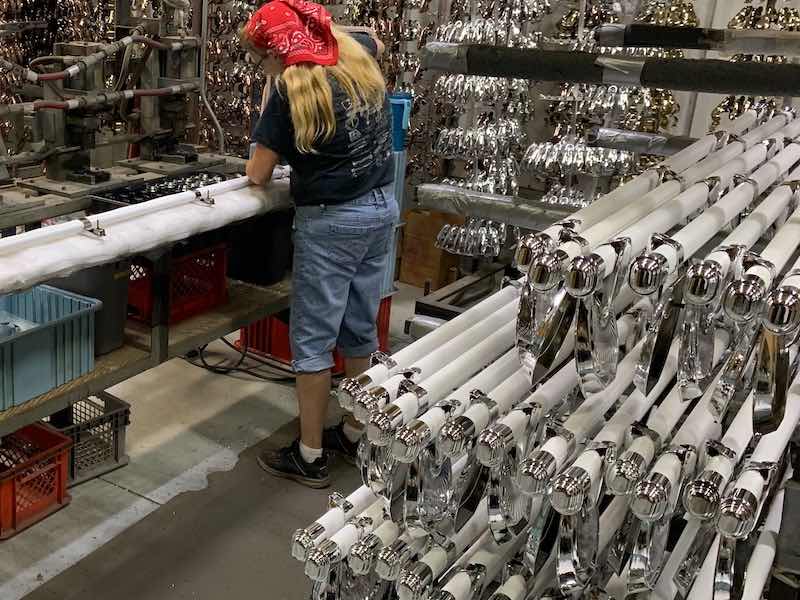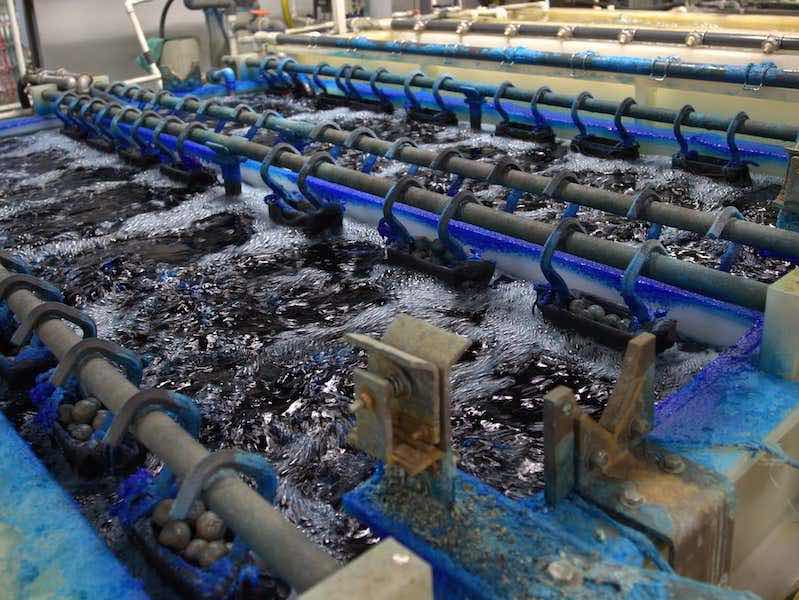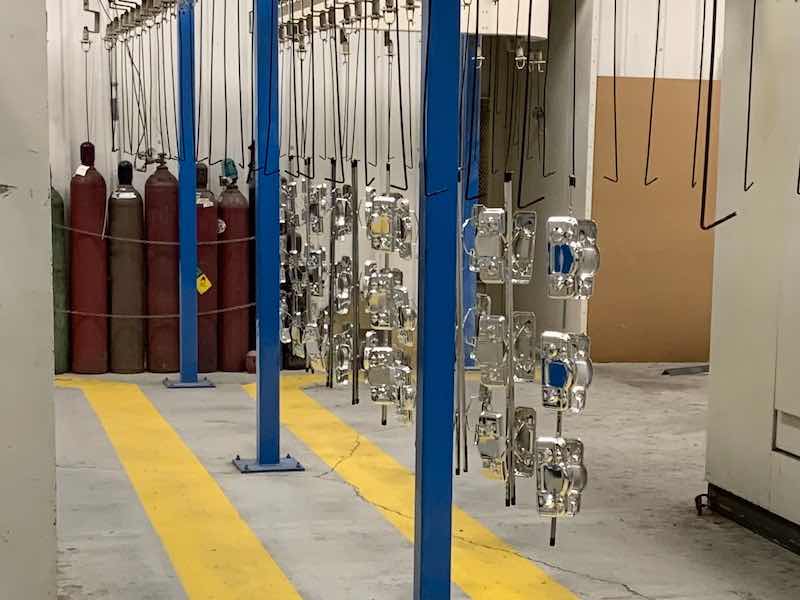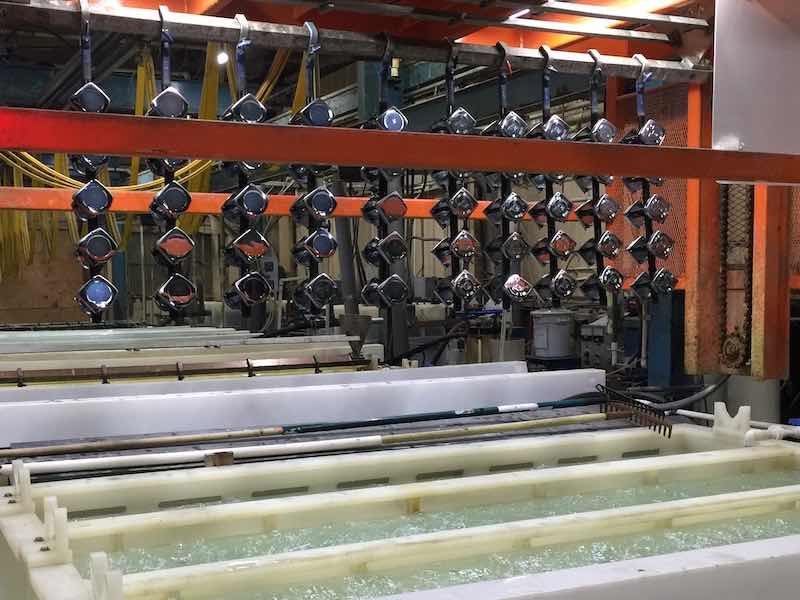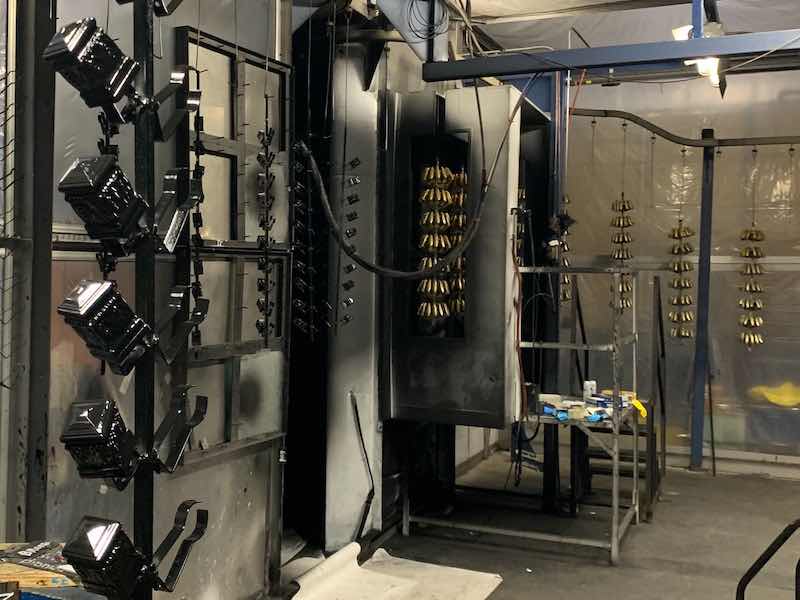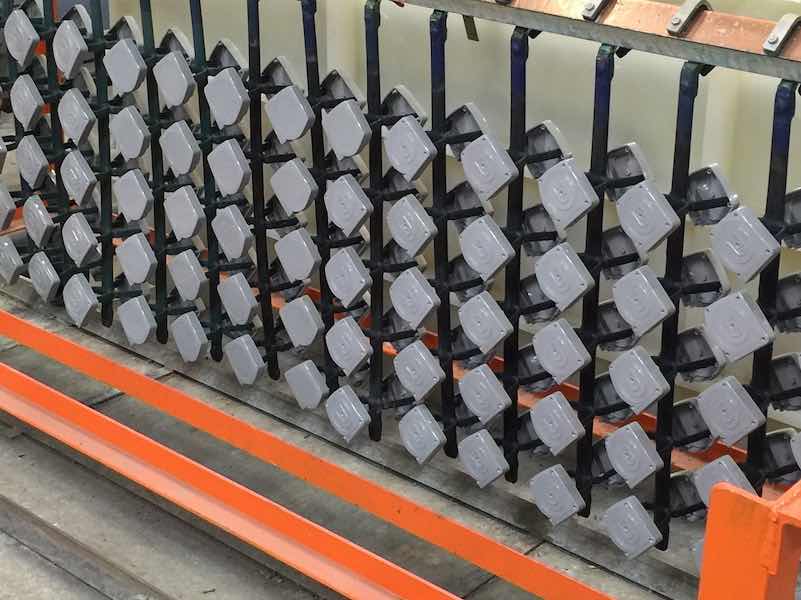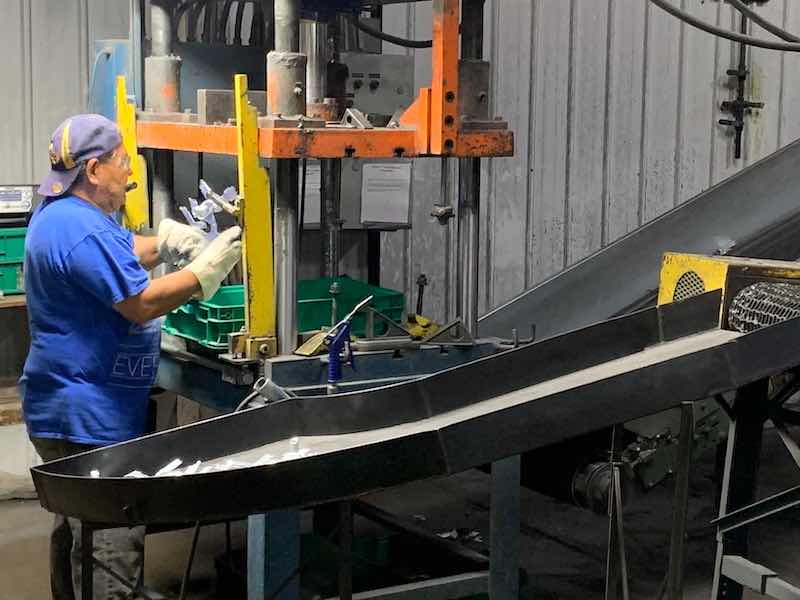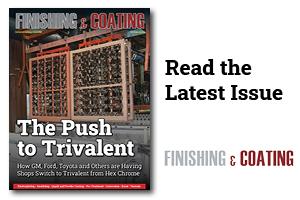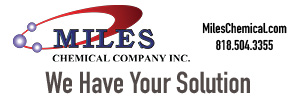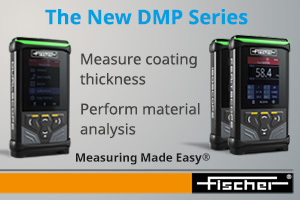When you are about to hit 100 years in the fabrication and finishing business, there are no short-term positions to take.
 Kevin Thomson“We are in this for the long haul, and we’ve never been in this for the quick buck,” says Kevin Thomson, President of Dixline Corp. in Galva, Illinois. “For us, we always have an eye out for new technology that can help us for years down the road.”
Kevin Thomson“We are in this for the long haul, and we’ve never been in this for the quick buck,” says Kevin Thomson, President of Dixline Corp. in Galva, Illinois. “For us, we always have an eye out for new technology that can help us for years down the road.”
Known as one of the premier finishers when it comes to decorative and functional casket hardware for the funeral industry, Dixline has steadily added newer technology to its manufacturing and finishing capabilities, including the use of physical vapor deposition on many of its coating operations.
The company offers metalized coatings (PVD) as well as electroplating, powder coating, plastic electromagnetic (EMI) shield coating, and plating-on-plastic (POP) to its customers.
Looking for Unique Offerings to Customers
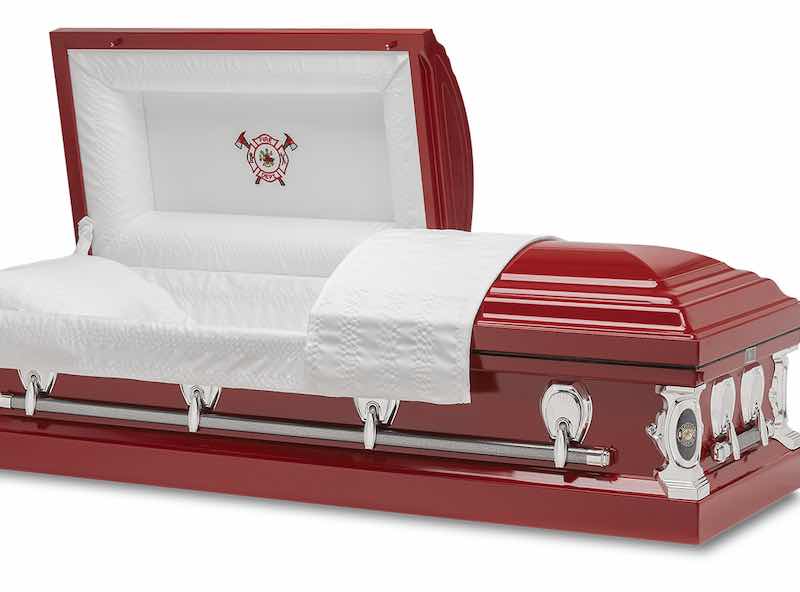 “Technology is expensive, but that has been something we have done for many generations is look for unique offerings to our customers,” says Thomson, who is the fourth-generation owner of the company.
“Technology is expensive, but that has been something we have done for many generations is look for unique offerings to our customers,” says Thomson, who is the fourth-generation owner of the company.
With his son and daughter —Julia and Presson — also working at Dixline, the company is prepping for rare fifth-generation ownership down the road as it gets ready to celebrate 100 years in business in 2024.
But finishing is not the only focus of Dixline, which also offers plastic injection molding, steel bar forming, zinc die casting, and steel stamping as part of its repertoire.
And business is booming, as the company’s 85 member production staff works two 10-hour shifts to keep up with the demand for their products.
According to www.ibisworld.com, the market size of the coffin and casket manufacturing industry is $657 million in 2022, which has held steady following steep drops from $897 million in 2012 to $638 million in 2017. The numbers have grown since, with the research estimating the growth of 0.6% per year on average over the last five years.
However, cremations have been preferred over typical funeral arrangements, as the National Funeral Directors Association reports that the 2022 cremation rate is projected to be 58%, and the burial rate is expected to be 37%.
Servicing Top Manufacturers in Casket Business
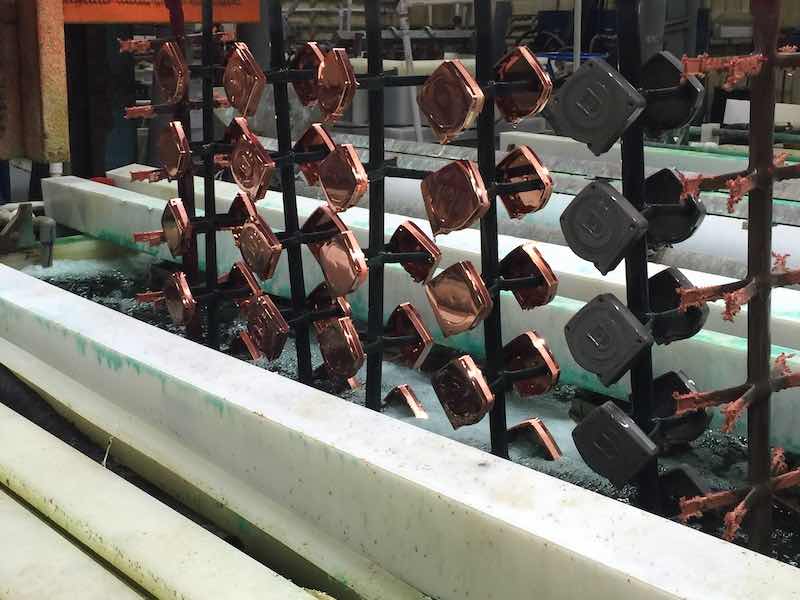 Dixline churns out more than 75,000 finished parts per day.But for Dixline, the casket hardware industry is still the large bulk of its work. Several of their top customers are major players in the sector, including Matthews Aurora Casket and Batesville Casket.
Dixline churns out more than 75,000 finished parts per day.But for Dixline, the casket hardware industry is still the large bulk of its work. Several of their top customers are major players in the sector, including Matthews Aurora Casket and Batesville Casket.
“About 90% of our work is still in the casket industry,” Thomson says. “Cremation is playing a bigger role, and we have a line of cremation products that we supply to Matthews and Batesville, but overall the funeral industry has been a consistent business for us.”
Dixline churns out more than 75,000 finished parts per day to various manufacturers across the country. Some die-cast parts are shipped to them to finish, while the company performs much of the stamping and extruding itself. For example, Dixline finishes several million casket arms each year for one particular manufacturer.
“Most of the casket manufacturers are vertically integrated, with the exception of the electroplating,” Thomson says. “We also do a lot of overflow PVD and injection molding for them as well.”
Founded in 1924 in Galesburg, Illinois
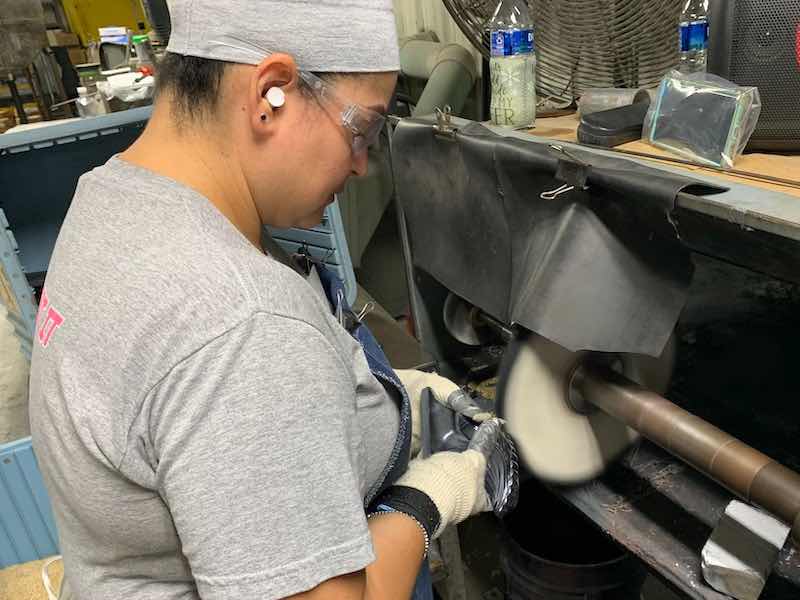 Dixline was founded by LeRoy Thomson in 1924 in Galesburg, Illinois. It was LeRoy’s son, Willard, who decided to move the company to Galva later that same year. Willard’s son — who is also named Will — is Kevin’s father, and he retired and turned it over to Kevin and his brother, David, who retired in 2018.
Dixline was founded by LeRoy Thomson in 1924 in Galesburg, Illinois. It was LeRoy’s son, Willard, who decided to move the company to Galva later that same year. Willard’s son — who is also named Will — is Kevin’s father, and he retired and turned it over to Kevin and his brother, David, who retired in 2018.
Kevin was the recipient of the 2022 Casket and Funeral Supply Association of America Lifetime Achievement Award, which is presented to CFSA members who have devoted at least 35 years to raising professional standards and moving the industry forward with positive and progressive actions. Will Thomson also received the same award in 2012.
“When I started here, I did a rotation in all the departments, doing everything from maintenance press, die casting, plating, painting, assembly, and shipping,” Thomson says. “The process took approximately two years, and there was a huge benefit to my continued education.”
The facility electroplates using nickel, zinc, copper, antique, or chrome finishes and offers the PVD coatings in gold, silver, bronze, chrome/aluminum, or any unique color needed.
Thomson says Dixline began the vacuum metallization process in the 1980s after many of its customers asked for the process.
“It seemed that a lot of the product lines were going to the bright finishes at the time,” he says. “When I came back to the company out of college in 1979, we were still trying to compete with bright electroplated finishes. But we knew that was not going to work for us.”
Adding PVD Coatings to Process Lines
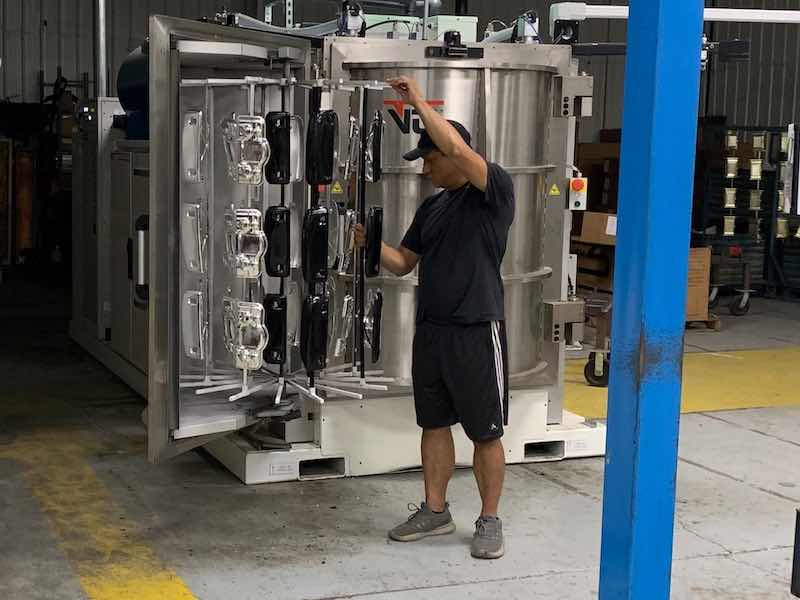 Dixline began the vacuum metallization process in the 1980s after many of its customers asked for the process.That’s when Will Thomson decided to add PVD to the Dixline coatings line. They originally installed a used Stokes Vacuum chamber to see how it would integrate into their operations, but quickly the demand outgrew the production capacity of the machine, so Dixline invested in two new Stokes 72-inch chambers to keep up with the workload.
Dixline began the vacuum metallization process in the 1980s after many of its customers asked for the process.That’s when Will Thomson decided to add PVD to the Dixline coatings line. They originally installed a used Stokes Vacuum chamber to see how it would integrate into their operations, but quickly the demand outgrew the production capacity of the machine, so Dixline invested in two new Stokes 72-inch chambers to keep up with the workload.
Thomson says the company is running 20 hours per day on their PVD line. They coat metal, zinc castings, and plastics in that department and run about 40,000 parts per day.
“You have to have the volume to run lines like this,” he says. “And ever since the pandemic hit, we have even been running those lines on weekends, too, so it does keep us very busy.”
Many of the parts that Dixline has coated in the past that were zinc castings have now gone to plastic. And nearly all of those parts are being produced by their in-house injection molding department.
The company started POP in 2013 because of demand from the market. At first, Thomson says they struggled to get the nuances of this new process down. They soon found out that a lot of success in plating plastic parts was determined by how well the parts were made by the molder.
“We were amazed at how much impact that has on the overall finish,” he says. “There were a lot of parameters that we needed to look at, and all of them had some impact on the quality of the part and how it is finished.”
Fortunately, the style and look of many of the casket parts that Dixline produces have not changed over the years, if at all.
“Some of these styles are the exact same that my grandfather was finishing,” Thomson says. “Having those relationships with our customers — and having the volume that goes with it – are what truly keyed us into bringing all of those tooling technologies in-house.”
Top-Coat Sealing for Various Industries
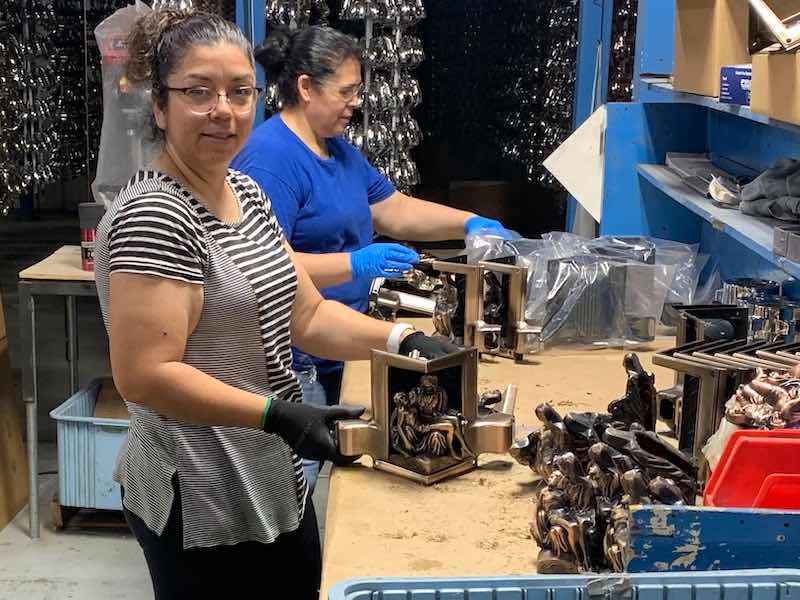 The facility can also offer several variations of top-coat sealing, including standard plasma, advanced mild-hard, and premium UV hard coating. Aside from the casket industry, Dixline is capable of producing door, window, furniture, and plumbing hardware, as well as parts for the aviation, automotive, and lighting industry.
The facility can also offer several variations of top-coat sealing, including standard plasma, advanced mild-hard, and premium UV hard coating. Aside from the casket industry, Dixline is capable of producing door, window, furniture, and plumbing hardware, as well as parts for the aviation, automotive, and lighting industry.
“Other than the bright chrome and the window and door hardware, we can also do an antique finish after the nickel, brass, or copper,” Thomson says. “We then hand-relieve those parts after the finish.”
The Dixline powder coat line is John Deere certified, which gives them the capabilities to also do work outside of the funeral and casket industry. Thomson says the paint lines were added to help the company stay vertically integrated as much as possible.
“We just couldn’t farm out the work and still expect to keep the business,” he says.
Major Upgrade to Wastewater Treatment Operations
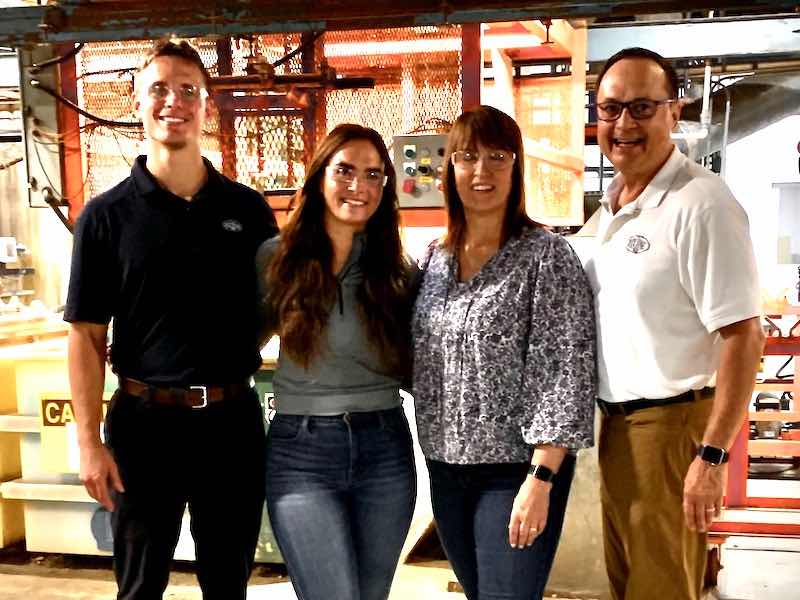 Dixline now has the 4th and 5th generation of Thomson family working in the business. From left is son Presson Thomson, daughter Julia Thomson, wife Shirley Thomson, and Kevin Thomson.In its continual effort to keep up with technology and its overall systems, Dixline is working on a major upgrade to its wastewater treatment operations by installing a new system that will be active in 2023 that will make the facility a complete closed-loop operation.
Dixline now has the 4th and 5th generation of Thomson family working in the business. From left is son Presson Thomson, daughter Julia Thomson, wife Shirley Thomson, and Kevin Thomson.In its continual effort to keep up with technology and its overall systems, Dixline is working on a major upgrade to its wastewater treatment operations by installing a new system that will be active in 2023 that will make the facility a complete closed-loop operation.
Thomson says they are already meeting and exceeding their limits with local, state, and federal regulations, but the city of Galva will soon be changing its waste treatment standards that will require Dixline to go to a closed-loop system.
They are working with MacDermid Envio on designing and installing the new system, which is currently in the review process with regulators. As part of the conversion, Dixline will also begin using MacDermid Enthone’s electroplating chemistry as part of its processes.
“This will be a fairly significant conversion for us,” Thomson says. “It will be a one-year program with the construction and putting all the pieces together.”
Moving forward, Dixline says it has been able to ramp up its staff since the pandemic caused issues for so many businesses, and Thomson is very optimistic about what the future holds for the company.
“During the pandemic, we weren’t taking on any new business, and it was definitely there for us,” he says. “Things have calmed down now, and we have our eyes on what we can do better for our customers.”
Visit https://dixline.com






